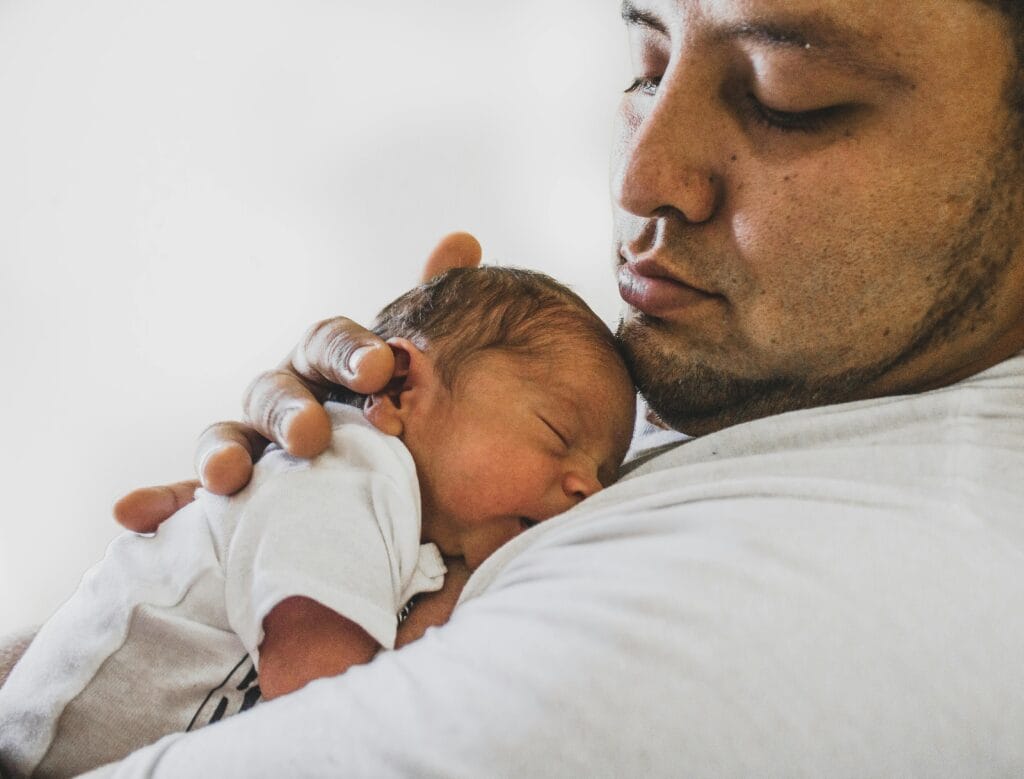Congratulations on the exciting journey of expecting a baby! The prospect of becoming a dad can bring a rollercoaster of emotions which can affect your relationship with your partner. You might feel pressure to be happy for the coming baby even when you are internally battling fear and anxiety due to impending change in status.

Also, hormonal changes that happen to women during pregnancy can put a serious strain of your relationship with your partner if not managed well. During pregnancy, especially in the first trimester, women battle nausea and vomiting (also known as morning sickness); pains in the breast and other parts of the body, irritability and mood swings, etc.
You may begin to feel left out as your pregnant partner begins to form a stronger attachment to the unborn baby. You think that all conversations and activities are now centred on the baby and not on you, This can mean that you are not on the same page with her. Added to this is the matter of sexual intimacy. Hormonal changes can cause a woman to have severely decreased libido leading to lack of interest in sex especially in the first trimester of pregnancy. Even as the pregnancy progresses and belly becomes bigger, sex can become quite uncomfortable for both of you. All these can affect intimacy during pregnancy and further tear your bond apart.
To keep your relationship intact and even strengthened, it is crucial that you work together as a team to understand and navigate these changes during pregnancy and beyond. You will also be able to provide the necessary physical, psychological and emotional need that your child needs to grow into a well-rounded child.
In this article, we share effective tips that would help you and your partner to walk through the pregnancy journey with your relationship intact.
1. Communication is Key
Talk openly and honestly with your partner about your feelings, fears, and expectations. Listen actively and validate each other’s emotions. Effective communication can reduce misunderstandings and strengthen your connection. Remember as we mentioned in the preceding paragraphs, pregnancy hormones can make women irritable. So bear in mind that you need a healthy dose of patience to have these conversations.
According to the National Library of Medicine, a healthy relationship and communication skill is crucial in raising a family. It further states that couples who enjoy communication would have the best and pleasant parenthood experiences in their lives.
2. Be Supportive
Pregnancy can be challenging, both physically and emotionally. Be there for your partner, offering comfort and assistance. Simple gestures like preparing a meal or offering a foot rub can go a long way in showing your support. What to expect recommends taking up more than the chores you usually handle, especially the physically challenging ones. This shows that you are actively involved in the pregnancy and reinforces to your partner that you are personally interested in their welfare and comfort and would foster closeness and strengthen your bond.
While you are supporting your partner, remember to support yourself. With all the attention of family and friends on the pregnant spouse, and the pressure to provide support for her, you might break down and be unable to provide the needed support. So take care of yourself and take breaks when necessary.
3. Attend Prenatal Visits Together
Joining your partner for prenatal appointments can help you both feel more involved in the pregnancy journey as well as convince your spouse that you care about her and your unborn baby. It’s an opportunity to ask questions about the pregnancy and what to expect during the pregnancy and after the baby is born., learn about the progress of the pregnancy, and bond over the experience. When your spouse knows that you are willing to take time off to go for prenatal appointments with her, it builds a sense of confidence and helps strengthen your bond.
4. Educate Yourself
Take the time to learn about pregnancy and childbirth. Understanding what your partner is going through can help you provide better support. Because men are not often seen in maternity services and are often ignorant about many matters relating to maternal health, it would be difficult to make informed choices about supporting the pregnant spouse, protecting and improving her health. This can put some strain in your relationship
Consider attending childbirth education classes together, researching pregnancy related topics from credible sources and joining support groups for expectant dads. These avenues would afford you adequate information about pregnancy as well as the changes to expect and you would be better equipped to support your spouse during pregnancy and childbirth as well as
5. Discuss Parenting Roles
Talk about how you envision sharing parenting responsibilities. Discussing topics such as childcare, discipline, and household duties can help you both feel more prepared for the arrival of your baby. This is not to be overlooked because it usually causes friction between spouses. Do not think that it is too early to have these conversations as you both need to be on the same page regarding parenthood.
6. Maintain Intimacy
While physical intimacy may change during pregnancy, it’s important to maintain emotional intimacy. Find new ways to connect, such as cuddling, spending quality time together, or exploring new hobbies as a couple. Maintaining physical intimacy ensures that the spark in your relationship remains despite the pregnancy. However, note that physical intimacy during pregnancy can be challenging for your pregnant spouse due to the physical and emotional changes that occur. Therefore, be patient and explore positions and acts that she is comfortable with
7. Seek Support

Don’t hesitate to seek help if you’re feeling overwhelmed. Consider joining a support group for expectant fathers or speaking with a counselor. Remember, it’s okay to ask for help. Fatherhood support groups affords men a safe space to share their challenges, successes and frustrations. You learn how other expect and new dads are navigating the changes that their spouse’ pregnancy brought about
In conclusion, pregnancy is a time of significant change for both partners. By communicating openly, offering support, and staying involved, you can navigate these changes together and strengthen your relationship in the process.














